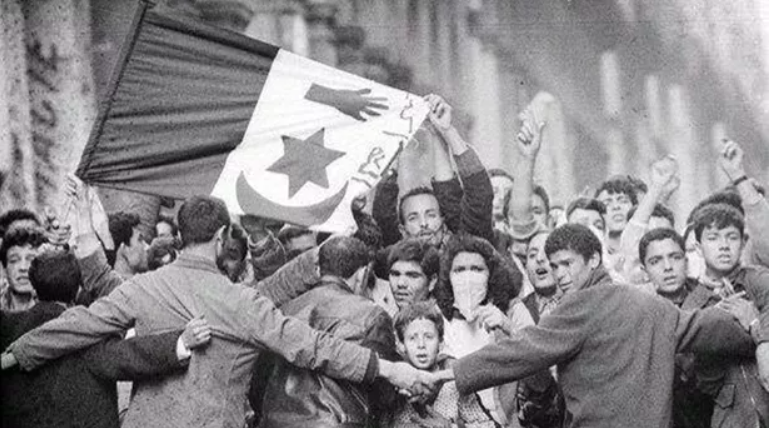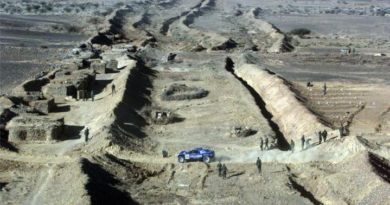Algeria marks the Setif Massacre anniversary
Algeria has recently marked the anniversary of a turning point in its long struggle for independence. On May 8, 1945, thousands had rallied in Setif, celebrating the allied powers’ victory in Europe over Nazi Germany, including France, which was Algeria’s colonial ruler. However, the festive gathering soon turned into a demonstration for an end to colonial rule, with cries of “Long live independent Algeria!”
This was a provocation for French police, who ordered the removal of the Algerian flags that had appeared for the first time, resulting in scuffles breaking out. The killing of Bouzid Saal, a demonstrator who refused to drop his flag, sparked outrage, leading to riots and revenge attacks on Europeans.
The French authorities responded with a campaign of violence, targeting Setif and the surrounding rural region, bombing villages and hamlets indiscriminately. Women, children, and the elderly were massacred, and some 44 villages were destroyed in 15 days of retribution. As many as 45,000 people were killed, according to Algerian official figures, while French historians put the toll at up to 20,000, including 86 European civilians and 16 soldiers.
The killings would have a transformative impact on the nascent anti-colonial movement, and a full-blown independence war broke out nine years later, leading to the country’s independence in 1962.
President Abdelmadjid Tebboune has described the killings as “crimes against humanity,” and Algeria has waited for France to apologize for its colonial-era crimes. While France only officially recognized the Setif massacre in 2005, it has since made moves to recognize crimes committed during its 132-year occupation of Algeria.
President Emmanuel Macron has admitted “in the name of France” that lawyer and independence figure Ali Boumendjel had been detained, tortured, and killed by French forces who then covered his death up as a suicide. Two years ago, Macron tasked French historian Benjamin Stora to assess how France has dealt with its colonial legacy and urged officials to accelerate the opening of French archives on the Algerian war.
The Stora report made several recommendations, including the creation of a “memory and truth commission” to hear testimony from those who suffered during the war. It did not, however, suggest a formal state apology.
Macron has offered neither “repentance nor apologies” but rather “symbolic acts” of reconciliation. Algeria has dismissed the report as “not objective” and has not moved to reciprocate Macron’s steps.
On the 78th anniversary of the 1945 massacres committed by the French colonial army against Algerian demonstrators, President Abdelmajid Tebboune has expressed hope for progress in talks with France on colonial-era files from 1830 to 1962.
In a message to the Algerian people, President Tebboune emphasized the government’s commitment to transparency and objectivity in dealing with the history and memory file, without any concessions or bargaining. The presidency has published the text of the message on its official website.



